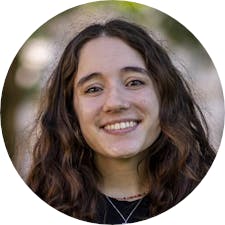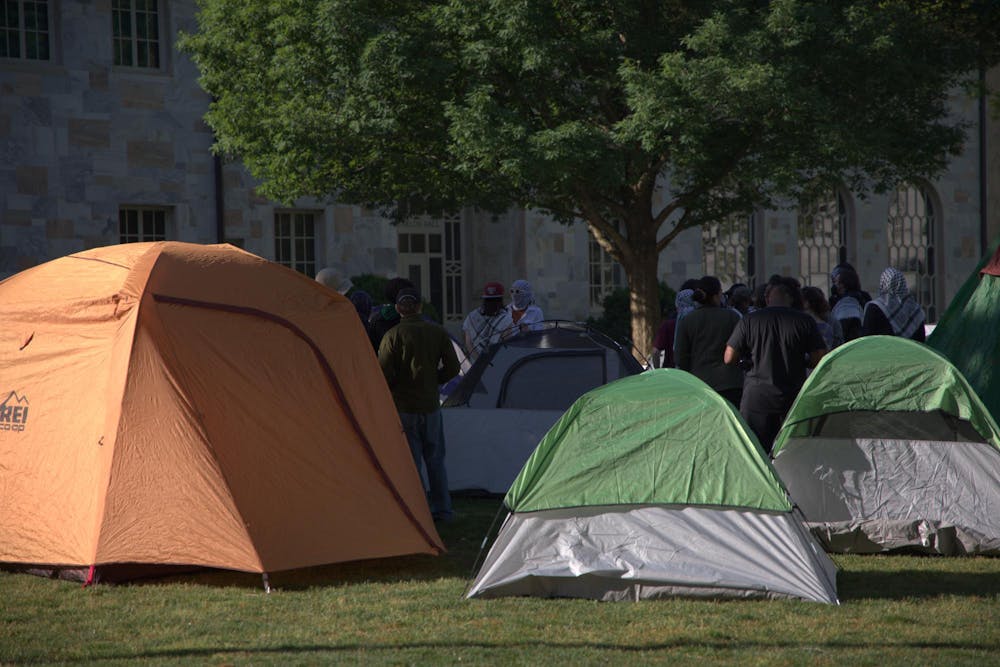Four months after Emory University drew national attention for shutting down a pro-Palestinian protest on campus that ended in 28 arrests, the University officially codified restrictions to student demonstrations in an addendum to the Respect for Open Expression Policy on Aug. 27.
The addendum states that encampments and building occupations or “takeovers” — both of which were tactics protestors employed to protest Emory’s response to the conflict in Gaza last spring — are prohibited. Additionally, the addendum stated that protests are prohibited between midnight and 7 a.m., and sleeping outside and camping overnight are not allowed on Emory’s campus.
University Senate President and Professor of Law George Shepherd and Committee for Open Expression Chair Ilya Nemenman have both expressed concern with how the addendum was implemented. According to Shepherd, the University Senate and its open expression committee did not review the changes before they were announced. He said that the University does not have to follow the advice of the Senate and committee in the creation of an addendum but that doing so has been common practice for the “last many years.”
“That’s why we objected to the way that this was just decided unilaterally by the administration, rather than offering an opportunity for consultation with the Senate,” Shepherd said.
Nemenman agreed with Shepherd, saying that the University deviated from normal procedure by not consulting the Senate or the open expression committee.
“I have expressed to the university president that I think that the way that these changes, the addendum, was implemented further erodes the trust between the administration and the rest of the University community,” Nemenman said.
However, Nemenman said that there have been “so many violations of procedures” in recent years that he no longer knows what constitutes normal procedure.
In an interview with The Emory Wheel, University President Gregory Fenves did not confirm if he consulted Shepherd or Nemenman in the creation of the addendum. He declined to answer if that was normal procedure but said that he is a proponent of shared governance. However, Fenves said that he did inform Shepherd and that another member of the leadership team informed Nemenman of the addendum.
Since its initial publication on Nov. 5, 2013, the open expression policy has gone through eight iterations. According to the policy, the committee for open expression is typically tasked with reviewing the document and proposing changes to the Senate as necessary. Last spring, the Senate also announced that they would form a committee to review and revise the policy, following the pro-Palestinian protests that re-ignited the ongoing conversation about open expression at Emory.
Shepherd alleged that in a call with Fenves, the president told him that it was necessary to publish the addendum before the start of the semester.
Fenves reiterated this in his interview with the Wheel, saying that he felt it was a “priority” to have the addendum out before the academic year began.
Assistant Vice President of University Communications Laura Diamond added in an email to the Wheel that the addendum to the policy “codifies what has been a longstanding practice at Emory, across multiple administrations, to place reasonable restrictions on time, place and manner.”
“Such rules enable us to keep our community safe while improving the ability of every member of our community to focus on our academic mission,” Diamond wrote.
Despite the University’s claims of a years-long practice, an Emory Students for Justice in Palestine board member, who requested anonymity due to fears of doxxing, said they believed the new policies were “very obviously” in response to campus protests last semester.
“Protests are meant to break the rules,” the member said. “If every protest followed the rules of whatever setting they were in, then they wouldn’t be a good protest.”
However, Fenves said that the newly-codified policy is not in response to last April’s pro-Palestinian protests.
“We had protests in April 2023 on a different topic, there were protests in 2013 on a different issue,” Fenves said. “This is content and viewpoint neutral.”
Shepherd said he hopes that the University consults the Senate and Committee for Open Expression for changes going forward.
“We would hope that in the future, if the administration is going to propose further changes, that the normal processes be followed so that there can be consultation before measures are adopted, rather than after,” Shepherd said.
News Editor Lauren Yee (25Ox) contributed reporting.

Madi Olivier (she/her) (25C) is from Highland Village, Texas, and is majoring in psychology and minoring in rhetoric, writing and information design. Outside of the Wheel, she is involved in psychology research, the Emory Brain Exercise Initiative and the Trevor Project. In her free time, you can find her trying not to fall while bouldering and obsessively listening to Hozier with her cat.

Spencer Friedland (26C) is from Long Island, N.Y. While not working at the Wheel, he is a member of Emory Disability Rights, Education Activism and Mentoring and the Franklin Fellows program. In his free time, he can be found watching the New York Yankees or going to the movies.

Jack Rutherford (he/him) (27C) is a managing editor at The Emory Wheel. He is from Louisville, Ky., majoring in economics on the pre-law track. When not working for the Wheel, he can normally be found rowing with Emory Crew, where he serves as president, or at an Atlanta Opera performance. In his free time, Rutherford enjoys listening to music and walking in Lullwater.






